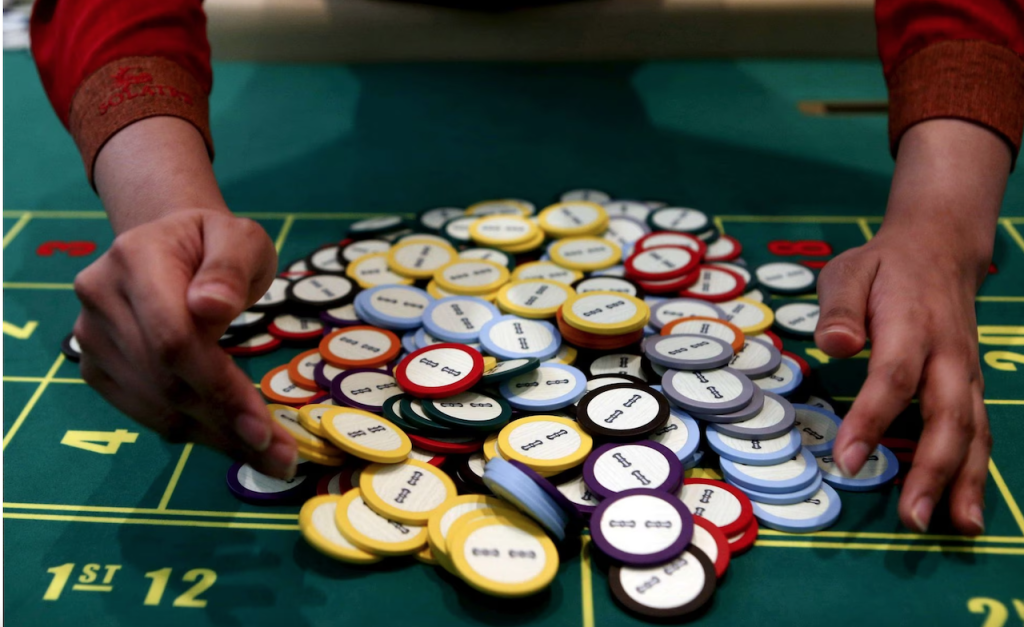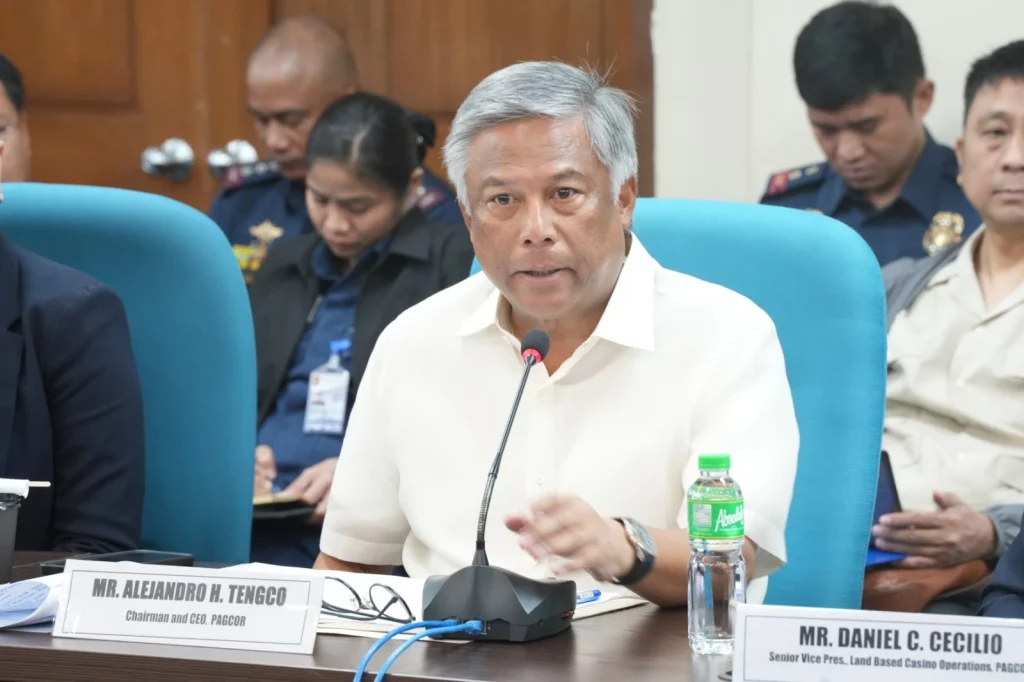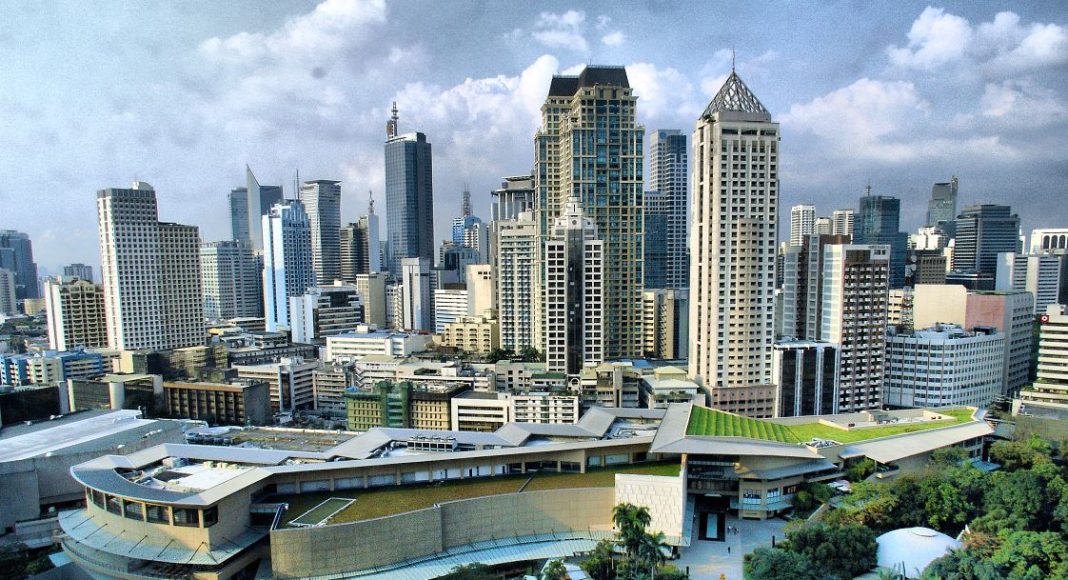A recent hearing at the House of Representatives has intensified calls for a ban on POGOs, bringing the debate to a new level. However, a gaming industry lawyer believes that the focus should be on enforcing existing laws rather than pursuing closure, citing the contribution of POGOs to the country’s economy.

Speaking to AGB, Tonet Quiogue, a partner at a Philippines-based law firm and an expert in the legal gaming space, notes that the House of Representatives’ call to ban POGOs (now IGLs) is rooted in Article II, Section 5 of the Constitution, which provides that “the maintenance of peace and order, the protection of life, liberty and property, and the promotion of the general welfare are essential to the enjoyment by the people of the blessings of a democracy.”
Tonet argues that Philippine Amusement and Gaming Corporation (PAGCOR) Chairman Alejandro H. Tengco was able to provide facts showing how their efforts in enforcing stricter regulations on IGLs led to the departure or closure of those with illegal operations and activities.
“The focus should be on the enforcement of existing laws, instead of closure, since IGLs contribute to the economy.”
Based on the information provided by Tengco, the government earned PHP5.2 billion ($93 million) from POGOs in 2023. The closure of IGLs would adversely affect 25,000 Filipino employees, 625,000 square meters of leased commercial office space, not including leased residential properties, and thousands of restaurants in Metro Manila and key cities in the provinces.
According to property management consultancy firm Colliers International-Philippines, while the demand for office space from POGOs has yet to reach 2019 levels, 656,000 square meters of office space in Metro Manila were occupied by POGOs in the first half of 2023, representing approximately 5 percent of the total office supply. Fifty percent of the remaining POGO-occupied spaces are located in the Bay Area.
During the peak of POGO demand in 2019, the sector occupied an estimated 1.3 million square meters of office space, accounting for 11 percent of the total office supply in Metro Manila.

POGOs rebranded last year
The Philippine gaming regulator, PAGCOR, implemented a revised regulatory framework for offshore gaming in August last year, rebranding Philippine Offshore Gaming Operations (POGOs) as Internet Gaming Licenses (IGLs).
In addition to enhancing due diligence and compliance processes for new applications, the move also establishes commercial barriers to entry based on the IGL Regulations to prevent dubious entities from obtaining licenses. IGLs also have higher capitalization requirements.
In a previous interview with AGB, Tonet mentioned continuous pressure from some members of the Philippine Congress calling for the abolition of POGOs, with several government officials, including the Department of Finance and the National Economic Development Authority, expressing support.
PAGCOR’s intentions are clear: they aim to properly regulate the IGL space and exercise more supervision and regulatory powers over their licensees. “The fact that PAGCOR unilaterally ‘suspended’ all POGO licensees and required them to reapply after a stringent process and under the new IGL Regulations showed its seriousness about cleaning up the online gaming space.”
The changes have not only been on the regulatory and licensing front. In addition to enhancing due diligence and compliance processes for new applications, there are also commercial barriers to entry based on the IGL Regulations to prevent dubious entities from obtaining licenses.
Currently, IGLs require a higher capitalization. An IGL’s space can’t be larger than 25,000 square meters for each of its properties. Additionally, a license is required for each property and will only be valid for two years. PAGCOR has also heightened its supervisory role by requiring surveillance cameras, surprise inspections, and other monitoring schemes.

House committee approves two measures regarding POGO ban
On February 12th, the House committee on games and amusement, led by Cavite 6th District Representative Antonio Ferrer, greenlit two significant proposals. House Bill 5082 aims to tackle the mounting issues associated with POGOs, whereas House Resolution 1197 calls for enhanced oversight and regulation. Notably, the latter, put forward by Cagayan de Oro City 2nd District Representative Rufus Rodriguez, pushes for a complete prohibition of POGOs.
Representative Rodriguez underscored various concerns related to POGOs. Despite their significant financial contributions to the country, these gambling establishments have reportedly engaged in illicit activities such as money laundering, illegal immigration, and labor violations.
Furthermore, POGOs have been associated with numerous instances of kidnapping and other violent crimes. In the initial six months of 2023, the Philippine National Police documented 4,039 victims across four criminal incidents linked to POGOs.
PAGCOR opposes the idea of a complete ban. PAGCOR Chairman Alejandro Tengco argued that the current iteration of POGOs significantly contrasts with their predecessors from the previous administration. Tengco assured the committee that the reforms enacted have produced favorable outcomes, successfully tackling the crimes and unlawful activities highlighted by Rep. Rodriguez.
Although a panel of the House of Representatives approved two measures seeking to ban POGOs, industry lawyer Tonet explains that “any bill that passes the House of Representatives (banning IGLs) will still need to go through the Senate and then be approved by the President.”











